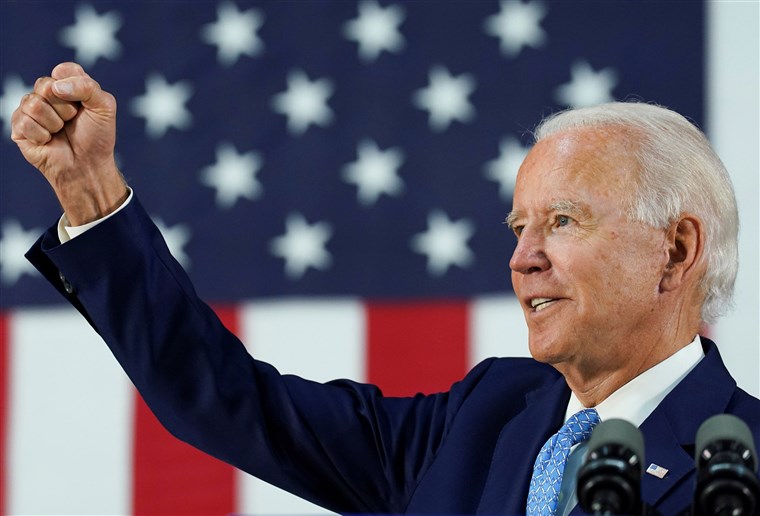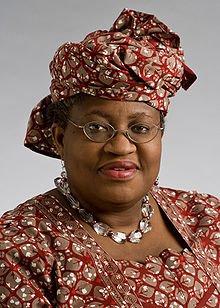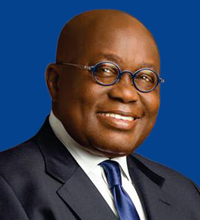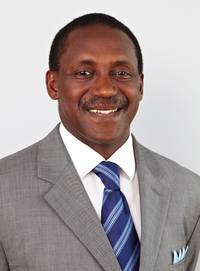- Details
- Written by Eric Acha
- Category: News
- Hits: 4787
The Russian - Africa summit: A Development Partnership Or An Alliance?
Amidst the ongoing war between Russia and Ukraine, Russia has somewhat succeeded in organizing a second Russia-Africa summit in St Petersburg. The summit which many have questioned its motives given its timing, seeks to redefine and shape the Africa-Russia relationship in ways only seen during the cold war era, as Russia’s current conflict with the West deepens.
This somehow affirms the assertion that the primary motivation of the current summit is aimed at winning African countries over in this new conflict prone era, rather than the claimed strengthening of economic, development, cultural and security ties.
The Russia-Africa Summit, held for the first time in October 2019, and was aimed at strengthening economic, political, and cultural ties between Russia and African nations. Many of the promises made during the first summit are still to be realised, notably the promised doubling of trade with Africa to $40bln. As of 2022, the total trade stood at $18bln. It would be fair to state that the covid era might have had some tremendous impact on this figure, hence the next few years will be crucial in determining the true motives of this relation.
In the 60s, Russia delineated a lot of interest in Africa and went as far as creating a University to train personnel from most newly independent African nations. It even named the University Patrice Lumumba University, in honour of the heroic African nationalist and pan-Africanist, Patrice Lumumba who was executed in January 1961. This was all part of its cold war diplomacy, because as soon as Russia started normalizing its relationship with the West, Africa became less and less of a priority. By 1992 (post-cold war era) Russia had renamed the University to the Peoples' Friendship University of Russia, following a decision taken by the Russian government, and had very little and insignificant conventional trade with Africa. Shortly after the Russia/Ukraine war started, Russia’s Minister of Education and Science signed a decree to return the name of Patrice Lumumba to the university in March 2023.
However, as it is with any major international event of this nature, there are expectations, both potential benefits and drawbacks:
Potential Benefits
- Diversification of Partnerships: Everything being equal, the summit provides an opportunity for African countries to diversify their partnerships beyond traditional allies. Over the years since independence, most African countries have maintained ties along colonial lines, with the former colonizers having much influence in almost every aspect of the former colony, and somehow acted as gate keepers through whom all other partners had to go. Engaging directly with Russia, as it was with China can open up new avenues for trade, investment, and technology transfer, potentially reducing Africa's overreliance on a few major trading partners.
- Access to Russian Expertise and Technology: Russia possesses expertise in areas such as energy, mining, and defense, which could be beneficial for Africa's development, only if both sides are committed as partners. Collaboration with Russian companies and institutions may facilitate technology transfer and skill development in these sectors, provided Russia is engaging in good faith, and not just playing the old cold war era diplomacy. The countries engaging with Russia must remain vigilant, and have an effective mechanism in place to follow up on all promises made.
- Development Finance and Investment: Provided the current war does not become very costly for Russia, the summit may lead to increased Russian investments in African infrastructure and development projects. Russia's participation in these areas could help address the continent's massive infrastructure deficit. There is however, little or no data to suggest the summit will lead to increase investment, and unlike the Chinese, there’s no track record of huge Russian infrastructure projects across the continent.
- Counterbalance to Western Influence: Some African countries view engagement with Russia as a way to balance out the dominance of Western powers in their affairs. By diversifying their partnerships, African nations can potentially gain more leverage and see a shift in international negotiations. This potential new shift was witnessed when a group of African leaders led by the South African and Egyptian presidents Cyril Ramaphosa and Abdel El-Sisi opted to mediate for peace between Russia and Ukraine. Here Africa was not just being seen as conflict infested continent, but a potential mediator in a conflict on European soil. The attempt was seen by many as having no credence, due to the leaders inability to resolve most of the conflicts on the African continent.
- Security Guarantees: Most African countries today are faced with both internal and external threats, and countries in the Sahel region are seen as facing existential threats from Isis and other terrorist groups, whom they believe years of reliance on the West has only worsen the situation. That is the narrative. You also have autocratic nations who for one reason or the other have ran out of favour with the West, and therefore feel threatened, thus turning to Russia for security guarantees is their only best option. In recent years, the Sahel and Central African regions have seen the prominence of Russian mercenaries, notably the Wagner para-military group playing key roles in the security structure. The group, which has featured repeatedly in numerous human rights reports for alleged human rights abuses, is suspected or having strong ties and enjoying support from of the kremlin. Hence Wagner is an extension of the Russian army on the African continent. The recent rift between the Russian government and the Wagner Group under Yevgeny Prigozhin should serve as a warning to any African country engaging the services of Wagner.
Potential Drawbacks for Africa:
- Geopolitical Considerations: Some skeptics argue that Russia's engagement in Africa is driven by geopolitical interests rather than genuine development concerns. African countries need to carefully assess the intentions behind Russian investments and ensure that they align with their own long-term development goals.
- Debt Concerns: Russia is indicating a major cancellation of debts owed by African nations. Should this materialize, and without attached conditions, it could lead to additional borrowing. Increased borrowing from Russia could potentially expose African countries to debt-related risks. It is essential for African nations to negotiate favorable terms and ensure that loans are used responsibly and effectively.
- Human Rights and Governance Issues: Russia has faced criticism for its record on human rights and governance. African countries should be cautious in their engagements and ensure that cooperation does not undermine their efforts to uphold democratic principles and protect human rights.
- Competition with Other Partnerships: Under normal circumstances, engaging with Russia should complement, not replace, existing partnerships. African countries should avoid getting entangled in geopolitical rivalries and strive for mutually beneficial relationships with all partners, else Africa could end up being a battlefield for proxy conflicts between Russia and West. African leaders must deal with this very diligently.
- Lack of Transparency: Concerns have been raised about the transparency of some Russian deals in Africa. African governments should insist on transparent and accountable business practices to avoid potential corruption and ensure that the benefits of cooperation reach their citizens.
In summary, the Russian-Africa Summit presents both opportunities and challenges for the continent. African nations should carefully consider their engagement with Russia, ensuring that it aligns with their development priorities and contributes positively to the well-being of their citizens. Transparency, responsible borrowing, and clear alignment with development goals are essential for maximizing the benefits while mitigating potential risks. The urgent desire to secure the flow of grain in the short term should not be the core of what defines the Russia - Africa relationship. How Russia emerges from the current conflict with Ukraine will be crucial in determining its future relationship with Africa.
Contact: acha [at]africanpolicyforum.org
The views represented herein are those of the author(s) and do not necessarily reflect the views of the Africa Policy Forum
- Details
- Written by APF
- Category: News
- Hits: 4183
The New International Financial System?: 10 Recommendations On What Africa should Should Do
June 20th, 2023
To be better placed to benefit from any new Financial system, there is a list of house-keeping tasks that Africa as a continent must do, and must approach the new international financial system with a strategic and proactive mindset. Here are some key considerations for Africa in navigating the evolving global financial landscape:
- Strengthen Domestic Financial Systems: African countries should focus on enhancing their domestic financial systems to make them more resilient, transparent, and efficient. This includes improving regulatory frameworks, fostering financial inclusion, and investing in infrastructure to support digital financial services.
- Enhance Regional Cooperation: African nations should foster closer regional cooperation to leverage their collective strength in dealing with the international financial system. This could involve establishing regional financial institutions, enhancing regional payment systems, and promoting trade and investment within the continent.
- Diversify Funding Sources: Africa should aim to diversify its sources of funding beyond traditional channels. While international financial institutions and foreign direct investment are important, African countries should explore alternative funding mechanisms, such as domestic capital markets, sovereign wealth funds, and public-private partnerships.
- Promote Economic Integration: African countries should actively pursue economic integration efforts, such as the African Continental Free Trade Area (AfCFTA). A unified African market will attract investment, enhance regional value chains, and strengthen the continent's negotiating position in the international financial system.
- Advocate for Reform: African nations should actively engage in global financial forums and advocate for reforms that address the specific challenges faced by the continent. This includes promoting fairer representation within international financial institutions, addressing debt sustainability concerns, and ensuring access to affordable financing for development projects.
- Embrace Financial Technology: Africa should embrace financial technology (fintech) solutions to leapfrog traditional financial infrastructure limitations. Mobile banking, digital payments, and innovative financial products can help increase financial inclusion, reduce costs, and improve efficiency in financial transactions.
- Build Partnerships: Africa should actively seek partnerships with both traditional and emerging global economic powers. Collaborating with countries and organizations that share similar development goals can provide access to expertise, technology, and investment opportunities.
- Prioritize Sustainable Development: Africa should prioritize sustainable development in its engagement with the international financial system. This includes seeking financing for renewable energy projects, promoting climate-smart agriculture, and integrating environmental, social, and governance (ESG) considerations into investment decisions.
- Strengthen Data and Research Capacity: African countries should invest in building robust data and research capacity to inform evidence-based policy making and negotiations in the international financial system. Access to accurate and timely data will enable African nations to effectively analyze trends, measure progress, and identify opportunities.
- Empower African Institutions: Africa should strengthen its own financial institutions, such as regional development banks and central banks, to play a more active role in shaping the international financial system. Building institutional capacity and expertise will enable Africa to have a stronger voice and influence in global financial matters.
By adopting these approaches, Africa can position itself to better navigate the new international financial system, promote sustainable economic growth, and improve the well-being of its people.
- Details
- Written by Eric Acha
- Category: News
- Hits: 15850
What Will A Biden Presidency Mean For Africa?
As America and the world celebrate what many are referring to as a “new era”, after a turbulent 4 years reign of President Donald Trump, many have begun asking what exactly will a Biden presidency look like, even before the president-elect has had the chance to deliver his victory speech.
That question couldn’t be any timelier for Africa, given that the outgoing president Trump is the first US president in 40 years to be leaving office without setting foot on the African soil. The Trump presidency’s Africa policy was not only a shadow of what it normally would be but almost none existence. The continent noticed a considerable policy shift, in terms of the US-Africa relationship, given the inward-looking Trump policy approach under the embroil signature of “America First”.
Adopting a “no involvement” approach meant any other Africa-US related issue had to take the bottom shelf, and probably never looked at, at the level of the presidency, thus allowing many experts to assert that Trump was shredding off pages of anything related to Africa off his agenda. He wasn’t only considered to have developed some cold feet towards Africa during the four years in office, but he also embarked on weakening any existing national and International institution through which Africa was benefiting from. First, he vigorously opposed International Trade Agreements that benefited many African countries, called for a massive reduction in funding for international organizations upon which many African countries benefited from.
He cut funding to most of these international organizations (especially UN bodies) with the intent of choking them off. Most United Nations Programs that benefited Africa were listed for defunding, including the World Health Organisation (WHO) that saw its funding suspended on April 14th, 2020 amidst the spreading of the Covid-19 pandemic. The UN Human Right Watch that has kept a constant watchful eye over most African autocrats with records of human rights abuses saw its US funding suspended in 2018, and the US shocked the world with its decision to withdraw from the Human Rights Council, a decision many saw as a gift to world dictators and human rights abusers.
Other than a few friendly (but meaningless) utterances from Trump’s Secretary of State Mike Pompeo during his visit to a few carefully selected countries in Africa (Angola, Ethiopia, and Senegal) earlier this year, and a lopsided shallow deal with Kenya, (details still unknown), there has virtually been no new trade deal between the US and Africa under the Trump administration.
The US zero interest in Africa policy meant China and other powers had it their way on the continent over the last 4 years, as more African Head of states leaned towards China for both security and development aid, albeit at a high cost given the Chinese strings attached to every aid package offered. All of this leaning done with China paying little or no attention to the deteriorating human rights abuses across the continent, and the multitude of conflicts ravaging the continent from North to South West to East.
From undermining the US-Africa strategic alliance to combat Jihadist in the Sahel, with a threat to withdraw US forces from the region, cutting funding for many US-Africa security programs, the withdrawal of the US from the Paris Agreement on Climate change mitigation, shredding and opting out of peace deals with Iran and the EU and as well as re-locating State Department resources to a trade war with China, it became apparent that the “US First” Trump’s policy was a recipe for disaster not only to Africa but to the entire world. The Trump White House’s recent decision not to back Ngozi Okonjo-Iweala for what would not only be Africa’s first Head of the WTO, but also the first woman to head the organization was another low point in the Trump US-Africa relationship.
With new deadly conflicts across the continent requiring international intervention and mediation on the rise, requiring responsible partners to step in and play key roles in resolving them, such as the war of independence in the Southern Cameroons, existing and complicated ones escalating to dangerous levels like the recent escalations between Ethiopia and Egypt over the Nile Dam, Eritrea and Ethiopian conflict, the rise of Insurgency in Egypt, the second Libyan civil war, Insurgency in the Maghreb, the South Sudan war, the Northern Mali Conflict and the recent coup, the Tuareg Rebellion in the Niger, Boko Haram insurgency in Nigeria and Cameroon and a multitude of other conflicts across the continent, a more friendly and engaging partner in the White House with an interest in seeing some level of stability across the continent would be some welcome news.
However, with the Covid-19 pandemic still ravaging across cities in the United States, with an ailing economy, the big question is “will a Biden presidency make any difference in the US Africa relationship? Or rather, what would a Biden presidency mean for Africa?
Eric Acha is the Executive Director for the Africa Policy Forum
Email For Media Contact: This email address is being protected from spambots. You need JavaScript enabled to view it.
- Details
- Category: News
- Hits: 13029
The Cost of Saving the Climate On Africa
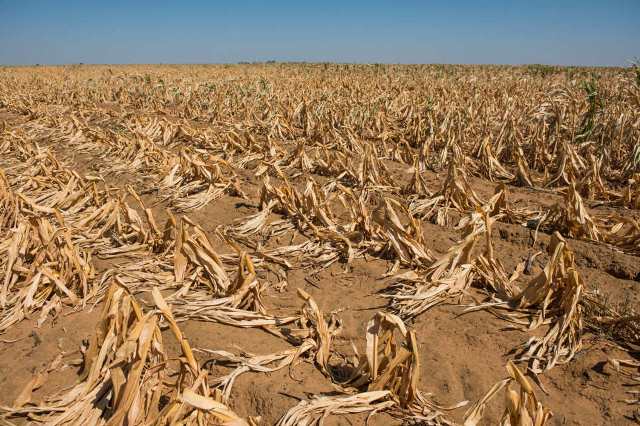
African countries, though at the bottom of the scale of polluters, are under enormous pressure to commit to low carbon emission development models, in line with already technologically advanced Western countries and China who are the highest polluters. To put it mildly, Africa is being asked to slow down it’s industrialization process (which is at its infant stage or none-existences in some countries).
To compensate for this slowdown, the continent was promised US$100 Billion a year by the world’s wealthier nations, during the climate summit in Copenhagen in 2009, a promise which hasn’t been kept. The 100bln /year promise (even if honored) is by our calculations a minuscule and insignificant amount of money given the economic impact of what is being demanded in return.
Being the biggest absorber of CO2 emission, due to the large size of the green forest across Equatorial Africa, part of the continent is also very vulnerable to climate change extremes such as droughts, floods, and cyclones, thus posing real life-threatening scenarios such as food security, health, economies and ecosystems destruction.
With all the above, and given the complex nature of some of these negotiations, the big question is: “which climate change mitigation and adaptation model will best suit Africa, one that will ensure its industrialization process stay course”?
- Details
- Hits: 8400
A Ghana (Sub-Saharan African) beyond AID
President Akufo-Addo
We can no longer continue to make policy for ourselves, in our country, in our region, in our continent on the basis of whatever support that the western world or France, or the European Union can give us. It will not work. It has not worked and it will not work”, he stressed.
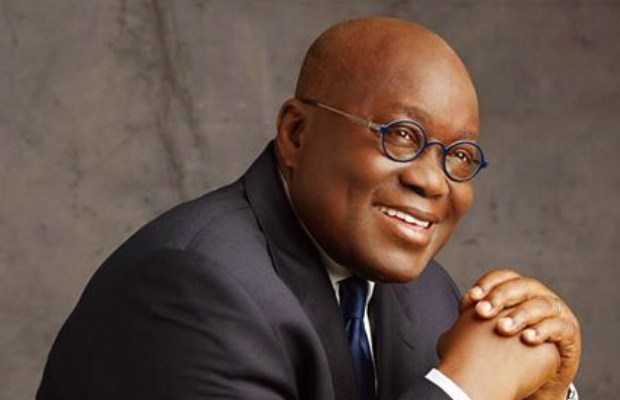 We have to get away from this mindset of dependency. This mindset about ‘what can France do for us?’ France will do whatever it wants to do for its own sake, and when those coincide with ours, ‘tant mieux’ [so much better] as the French people say…Our concern should be what do we need to do in this 21st century to move Africa away from being cap in hand and begging for aid, for charity, for handouts. The African continent when you look at its resources, should be giving monies to other places…We need to have a mindset that says we can do it…and once we have that mindset we’ll see there’s a liberating factor for ourselves,” his rising tone and demeanor demonstrating his passion for this subject.
We have to get away from this mindset of dependency. This mindset about ‘what can France do for us?’ France will do whatever it wants to do for its own sake, and when those coincide with ours, ‘tant mieux’ [so much better] as the French people say…Our concern should be what do we need to do in this 21st century to move Africa away from being cap in hand and begging for aid, for charity, for handouts. The African continent when you look at its resources, should be giving monies to other places…We need to have a mindset that says we can do it…and once we have that mindset we’ll see there’s a liberating factor for ourselves,” his rising tone and demeanor demonstrating his passion for this subject.
African Leaders Should Accept Their Failure in Solving Conflicts on the Continent.
“when I am watching TV and see our leaders, who should have been working together all along to address these problems that commonly affect their countries wait until they are invited to Europe to seat there and just talk; why does anybody wait for that?.
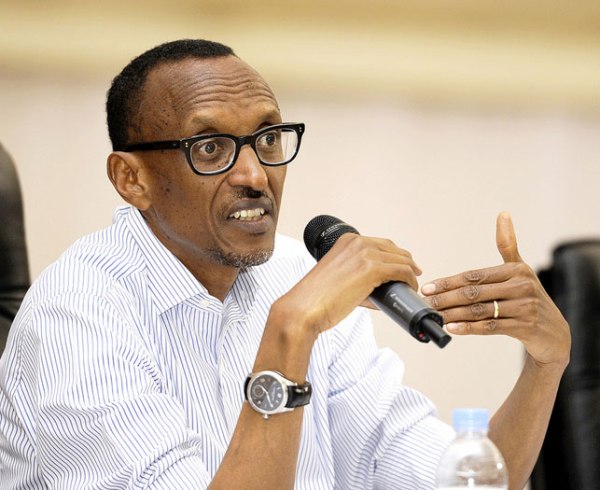
President Paul Kagame, known for his outspoken nature took the central stage last week while contributing to a panel discussion at the on-going African Development Bank's annual meeting taking place in the Rwandan capital Kigali. The Rwandan president in his soft but firm tone stated that African leaders should accept their failure in solving conflicts on the continent. The theme of the session to which he was contributing was “Solving conflicts and Peace building in Africa”, and had the former president of Nigeria Olesegun Obasanjo amongst others as a panellist.

